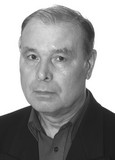The synergy between the athlete's functional systems and their training regimen is essential for achieving peak athletic performance
Keywords:
: functional system, integration, organismal level, sports training.Abstract
Objective of the study was to recognize the holistic approach to sports training, viewing the athlete's body as a unified and interconnected system.
Methods and structure of the study. The study involved the examination and synthesis of scholarly and methodological sources. The research was conducted over the period of 2022 to 2024, employing a range of techniques, including literature analysis and synthesis, deductive reasoning, inductive reasoning, extrapolation, and content analysis.
Results and conclusions. It is clear that sports training is a pedagogical system that operates as a self-regulating and self-organizing mechanism, maintaining the athlete's body in a state of balance and enabling them to adapt to physical exertion. Sports training triggers a series of processes in the athlete's body: 1. Afferent synthesis: The athlete's body receives information about the current state and conditions. 2. Decision-making: Based on the information received, the athlete's body makes a decision about how to respond. 3. Formation of an acceptor of action results: The athlete's body creates a mental representation of the desired outcome. 4. Fitness as a result: The athlete's body performs the desired action. 5. Reverse afferentation: The athlete's body receives feedback about the outcome of the action. 6. Comparison and evaluation of the result in the acceptor of action results: The athlete's body compares the actual outcome with the desired outcome and evaluates the difference. 7. Correction: Based on the evaluation, the athlete's body adjusts their actions to achieve the desired outcome. 8. New result level of fitness: The athlete's body achieves the programmed adaptive result. The ultimate objective of all these processes is to achieve the programmed adaptive result.
References
Anokhin P.K. Uzlovyye voprosy teorii funktsionalnoy sistemy. Moscow: Nauka publ., 1980. 160 p.
Anokhin P.K. Biologiya i neyrofiziologiya uslovnogo refleksa. Moscow: Meditsina publ., 1968. 546 p.
Rudenko G.V., Dubrovskaya Yu.A., Bobrov I.V. Metodika opredeleniya psikhofiziologicheskogo potentsiala organizma. Teoriya i praktika fizicheskoy kultury. 2018. No. 4. pp. 8-10.
Sudakov K.V., Kotov A.V., Loseva T.N. Fiziologiya. Osnovy i funktsionalnyye sistemy. Moscow: Meditsina. Leningradskoye otdeleniye publ., 2000. 781 p.
Sudakov K.V. Obshchiye predstavleniya o funktsionalnykh sistemakh organizma. Osnovy fiziologii funktsionalnykh sistem. K.V. Sudakov [ed.]. Moscow: Meditsina publ., 1983. pp. 6-26.
Sudakov K.V. Izbrannyye trudy. Moscow: GU NII normalnoy fiziologii im. P.K. Anokhina RAMN publ., 2007. No. 1. 343 p.
Filosofskiye aspekty teorii funktsionalnykh sistem. Printsipialnyye voprosy obshchey teorii funktsionalnykh sistem. Moscow: Nauka publ., 1978. pp. 49-106.
Fudin N.A., Vagin Yu.E. Analiz sportivnoy deyatelnosti s pozitsii teorii funktsionalnykh sistem. Sechenovskiy vestnik. 2016. No. 3 (25). pp. 34-45.
Eshbi U.R. Vvedeniye v kibernetiku. Moscow: IL publ., 1959. 788 p.
Eshbi U.R. Konstruktsiya mozga (Proiskhozhdeniye adaptivnogo povedeniya). Moscow: IL publ., 1962. 398 p.

Additional Files
Published
Versions
- 12-01-2026 (4)
- 25-12-2025 (3)
- 30-05-2025 (2)
- 11-05-2025 (1)
How to Cite
Issue
Section
License
Copyright (c) 2025 Theory and Practice of Physical Culture

This work is licensed under a Creative Commons Attribution 4.0 International License.
